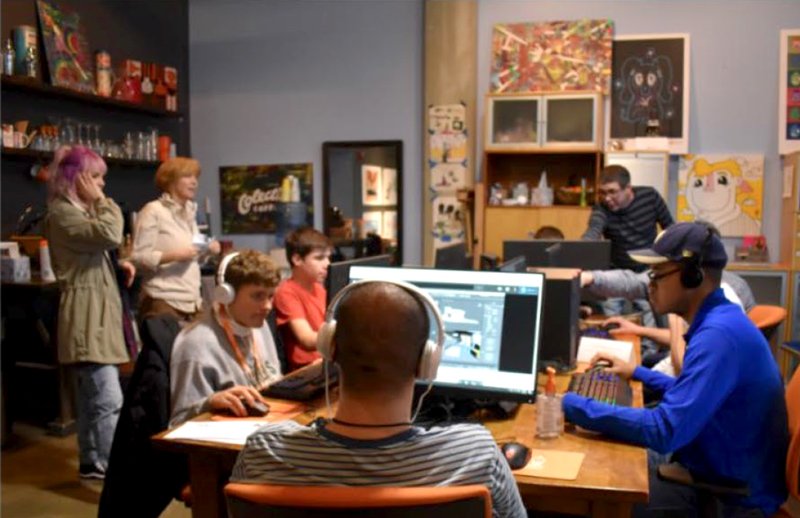Organizations work to promote a neuro diverse workforce.
By Brandon Anderegg, staff writer for Biz Times
Some companies are adapting hiring practices to access a segment of the workforce that is largely untapped but could provide a competitive advantage for even the largest of organizations.
Microsoft and JPMorgan Chase are among a growing number of companies that have begun seeking out talent that is “Neuordiversive”, an umbrella term used to describe individuals with autism, dyslexia, ADHD, and other neurological differences.
Neurodiversity advocates say it’s about more than just promoting inclusivity, but rather the idea that neurological differences are normal and that diversity can positively impact the workforce.
“Nationally what you’re seeing is this movement towards hiring neurodiverse workers. Particularly in the tech field,” said Mark Fairbanks, executive director of Milwaukee-based Islands of Brilliance. “(The field has) kind of redone how to schedule visits and interviews to take advantage of the talent of these candidates.”
In some cases, JP Morgan Chase found that its employees on the autism spectrum are as much as 140% more productive than their neurotypical peers, according to its website. A University of Montreal and Harvard University joint study also found that individuals with autism were able to problem solve 40% faster than their peers.
Still, it’s estimated that 71% of adults with autism are unemployed, according to a study conducted by Drexel University’s A.J. Drexel Autism Institute. Some experts estimate an even higher rate of unemployment while other studies consider factors like underemployment, or individuals who cannot work because they have higher support needs.
Islands of Brilliance students work on 3D modeling as volunteers walk around to answer questions.
Experts say standard hiring processes and the way in which interviews are conducted have contributed to those unemployment numbers for adults with autism. Social difficulties are one of the hallmarks of autism, making it difficult for prospective employees to navigate the traditional hiring process, said Josh Teigen, president of Mind Shift, an organization that employs individuals on the autism spectrum.
“That resume and interview process is the biggest barrier,” Teigen said. “The ability to do the work at a really high level is not the barrier; it’s the perception that this person has a disability, so how could they possibly do this really high-level or even entry-level work?”
Minneapolis-based Mind Shift provides a pipeline of employment for individuals on the autism spectrum by matching them with companies based on their skillset. These individuals are Mind Shift employees, but their work is outsourced by Fortune 500 companies like GE Healthcare and Anthem Blue Cross Blue Shield.
In the case of GE Healthcare, Mind Shift specialists based in Milwaukee provide the health tech company with data analytics. These employees are paid the same as their neurotypical counterparts both in benefits and salary, Teigen said.
“We have data that our specialists are actually faster, more accurate and better in most roles than neurotypical people,” Teigen said. “So, it’s not necessarily a charitable thing to do; it’s a good business decision because their ability to do these tasks is far superior.”
One Mind Shift employee was previously working as a package handler at UPS when Mind Shift’s assessment process revealed he had many more capabilities. The employee was then placed in a data analytics role for Anthem. On the third day of his job, he inspired a major change in the company, Teigen said.
While some students work on computers, others work on drawing character models, which will be converted into 3D characters in games.
This employee had previously created an algorithm to track his skill level in a video game against other players. Realizing the algorithm provided value to his work, he brought the idea to Anthem’s senior vice president and explained how it could automate a majority of work in his department.
“He didn’t even design it for that purpose. He built it just for fun and then realized there was an application at his new job,” Teigen said. “Now it’s kind of the foundational core to their data analytics practice at Anthem”.
Locally, Islands of Brilliance is moving the neurodiversity conversation forward through its project-based learning and workshops for children on the autism spectrum. The organization offers tech and design programs, through which students not only learn technical skills, but also grow confidence critical in social and peer-to-peer interactions.
Islands of Brilliance highlights the strengths of individuals on the autism spectrum, which include rapid technology learning, a penchant for routine and divergent thinking. These positive characteristics could aid employers as they pursue digital transformation, innovation and industry disruption, Fairbanks said.
Volunteers at Islands of Brilliance, most of whom are professionals, work one-on-one with students, a dynamic Fairbanks says builds familiarity with neurodiversity and what employable skills exist among the population.
Although many local companies are talking about neurodiversity, not many have actually hired individuals on the autism spectrum, Fairbanks said. This is because many companies, large and small, see the process as a greater initiative than it really is, he said.
Behind the increased productivity and other benefits of neurodiversity lies a support structure or a company culture that’s accepting of neurodiversity. Mind Shift, for example, has an employment services team whose function is akin to a mentor or job coach found in traditional work settings.
“Kind of like if you had a professional athlete that operates at peak performance,” Teigen said. “On the back end, they have a head coach, an agent and a strength and conditioning coach.”
Islands of Brilliance student Garrett Scott works on a project using Autodesk 3DS Max modeling software.
But it’s also important to know the nuances that are unique to working with someone on the spectrum, Fairbanks said. Building a work day around certain strengths is a strategy that companies can use to successfully integrate workers on the spectrum, he said.
“Regardless of who you’re hiring, there are accommodations for talent,’ Fairbanks said. “And I would say, I haven’t seen anything out of our population that I haven’t seen at a professional level – it just looks a bit different.”
While the prevailing national story around neurodiversity is a tech story, not all neurodiverse talent is suited for the tech sector. Moving the needle on the unemployment rate for individuals with autism cannot be done by just filling tech jobs; employers have to think more broadly, Fairbanks said.
“It’s going to take a lot of different organizations and employers pulling in the same direction in order to change the dynamic around that number,” Fairbanks said. “That’s not just going to be tech jobs that will change that number. That’s just not realistic.”






